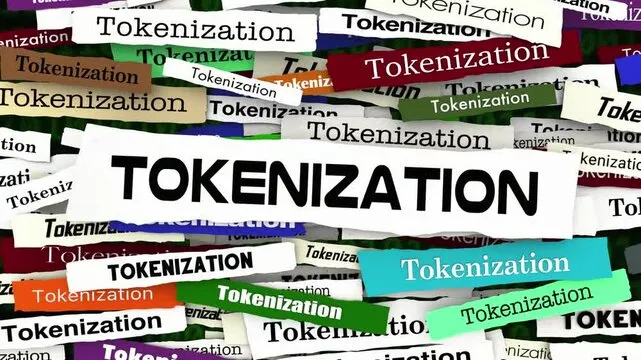
In an era where digital innovation is reshaping every corner of our lives, the financial world stands on the brink of a possibly profound transformation. Tokenization, which is the process of converting real-world assets into digital tokens on a blockchain can possibly democratize access to investments, streamline transactions, and open up new avenues for wealth creation. But what exactly is tokenization, and how might it redefine investing in the years ahead? It’s worth exploring its fundamentals, future applications, and the balanced pros and cons that investors must weigh.
What Is Tokenization?
At its core, tokenization involves representing ownership rights to physical or digital assets as digital tokens on a blockchain, a decentralized ledger that can help ensure transparency and security. Imagine a piece of real estate, a share of stock, or even a work of art being broken down into thousands of tiny digital units, each token verifiable, transferable, and tradable 24/7 without the need for traditional intermediaries like banks or broker-dealers.
This isn’t just about cryptocurrencies; it’s about bridging the gap between tangible assets and the digital economy. As an example, a luxury apartment could be tokenized into fractional shares, allowing multiple investors to own a slice without buying the whole property. Blockchain technology underpins this by providing an immutable record of ownership, reducing fraud risks and enabling smart contracts, self-executing agreements that automate processes like dividend payments or asset transfers.
Tokenization’s Role in the Future of Investing
Looking ahead to 2030 and beyond, tokenization could fuel a $400 billion opportunity in alternative investments alone, by making illiquid assets like private equity, real estate, and fine art more accessible to everyday investors. Here’s how it might play out across key sectors:
- Real Estate Revolution: Tokenized properties could allow fractional ownership, enabling retail investors to buy into high-value assets like commercial buildings or vacation homes with as little as $100. This democratizes real estate investing, traditionally reserved for the wealthy, and boosts liquidity by enabling instant trades on global platforms.
- Alternative Assets and Collectibles: Art or wine could even be tokenized, turning static holdings into dynamic investments. Startups might issue security tokens representing equity, allowing early-stage funding from a global pool of backers without the hassles of traditional venture capital.
- Traditional Securities and Bonds: Stocks and bonds could go fully tokenized, automating issuance, interest payments, and settlements. This could slash processing times from days to seconds, fostering cross-border trading and hybrid models where only parts of an asset (like revenue streams) are digitized.
By unlocking trillions in trapped value, tokenization could make finance more inclusive, efficient, and interconnected, potentially reshaping global markets.
The Pros: Why Tokenization Could Be a Game-Changer
Tokenization isn’t without its hype, but the benefits are tangible and backed by industry momentum:
| Benefit | Description |
| Enhanced Liquidity | Illiquid assets like real estate or private equity become easily tradable, reducing holding periods and unlocking capital. |
| Democratized Access | Fractional ownership lowers entry barriers, allowing retail investors to diversify into premium assets previously out of reach. |
| Efficiency and Cost Savings | Smart contracts automate processes, cutting intermediaries, transaction fees, and settlement times, potentially saving billions annually. |
| Transparency and Security | Blockchain’s immutable ledger can help ensure verifiable ownership, reducing fraud while enabling real-time compliance checks. |
| Global Reach | 24/7 trading across borders fosters inclusivity. |
These advantages could transform investing from an elite pursuit into a participatory ecosystem.
The Cons: Challenges on the Horizon
Despite the promise, tokenization faces hurdles that could slow its rollout:
| Challenge | Description |
| Regulatory Uncertainty | Varying global rules on securities and crypto could stifle innovation or lead to compliance pitfalls. |
| Security Risks | Blockchain hacks or smart contract vulnerabilities pose threats to tokenized assets, potentially eroding trust. |
| Market Volatility | Linking traditional assets to crypto markets could amplify price swings, deterring conservative investors. |
| Adoption Barriers | Technical complexity and the need for widespread infrastructure could slow mainstream uptake, especially in emerging markets. |
| Scalability Issues | High transaction volumes might strain blockchains, leading to fees or delays. |
Addressing these will require collaboration between regulators, technologists, and financial institutions.
Looking Ahead
Tokenization may make investing faster, fairer, and more innovative, potentially injecting trillions into the global economy. Yet, its success hinges on navigating risks with robust safeguards. For investors, it’s important to stay informed, diversify wisely, and watch as this digital shift unfolds.
About the Author
Joseph M. Favorito, CFP® is a Certified Financial Planner® as well as the founder and managing partner at Landmark Wealth Management, LLC, a fee-only SEC registered investment advisory firm. He specializes in helping individuals and families develop comprehensive financial strategies to achieve their long-term goals.
